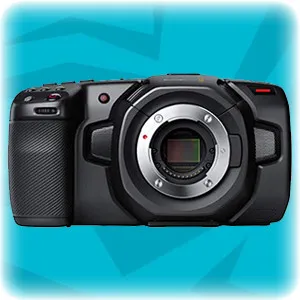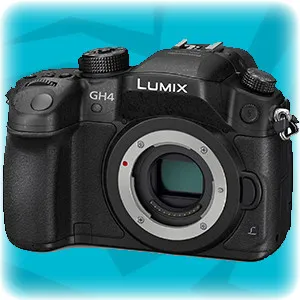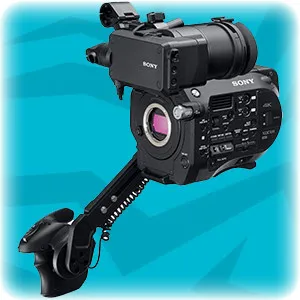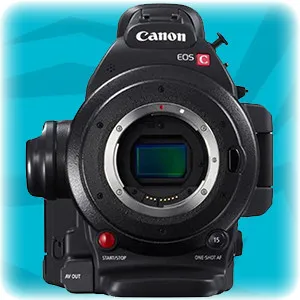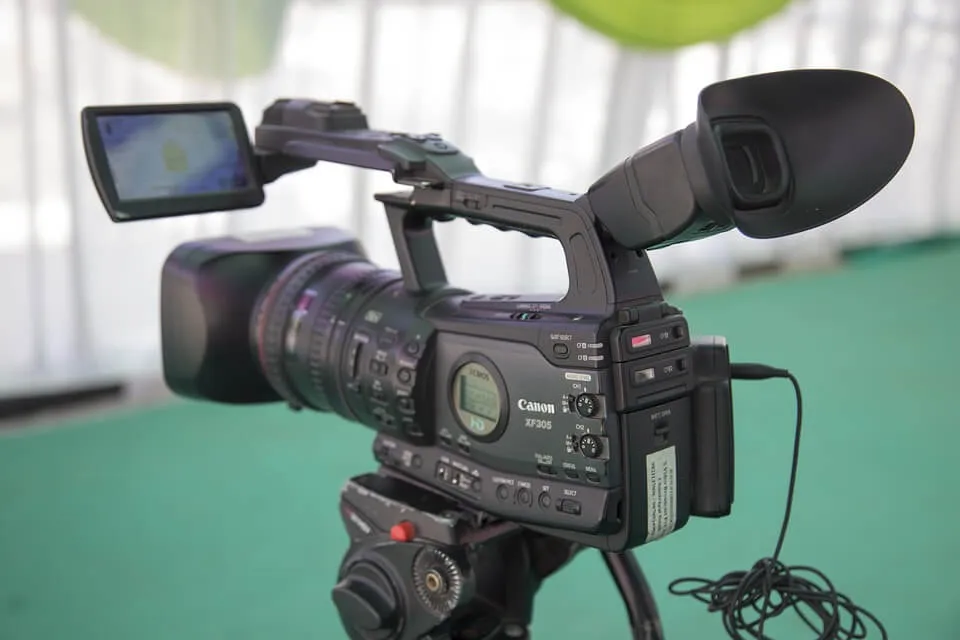
I recently landed a gig where i had to record a short documentary about a restaurant. This was my first time doing something in this field, so i was not sure which camera would be the best for this. I tested over 14 different cameras before i started to record the documentary. Honestly, it was tough to pick between the portability of the Blackmagic Design Pocket Cinema Camera and the professionalism of Sony PXW-FS7 XDCAM. I will talk about each camera i tested in detail in the following paragraphs.
Shooting a documentary is a hard job. Something that most of us can’t do and even won’t give it a try. Even if you have the best team behind you back, it is one of the toughest things to do. However, it is extremely rewarding to do so. It requires a lot of planning, improv, and great storytelling, so the end product will come out smoothly. Don’t worry though, as it is possible and it is a good challenge for every aspiring filmmaker.
Then again like everything, it requires a good team, which we can’t help, and good gear, an area that we can help you with. Besides having a good team and a fail-safe game plan you will need reliable and versatile gear to shoot your documentary. For that reason today I will reveal the best cameras for documentaries. On top of that, we will check out the things that make a camera good for the purpose and much more. Now without further ado, let’s take a closer look at our top 5 cameras for documentaries:
| Image | Product | Rating | Price |
|---|---|---|---|
|
Best High-End Option
 |
Canon EOS C100 Mark II
|
10
|
Check Price On Amazon |
|
Best For Professionals
 |
Sony PXW-FS7 XDCAM
|
9.8
|
Check Price On Amazon |
|
Best For Low Light
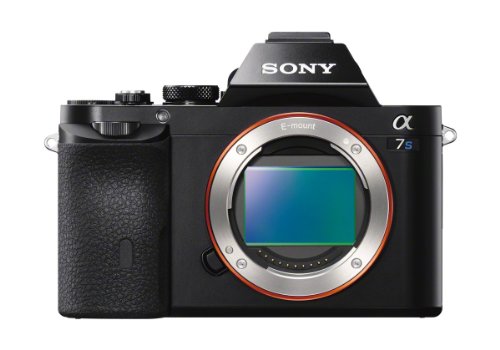 |
Sony ILCE7S/B Alpha a7S Mirrorless Digital Camera
|
9.6
|
Check Price On Amazon |
|
Best For The Money
 |
PANASONIC LUMIX GH4
|
9.5
|
Check Price On Amazon |
|
Best Compact Camera
 |
Blackmagic Design Pocket Cinema Camera 4K
|
9.2
|
Check Price On Amazon |
The 5 Best Cameras For Documentaries
5. Blackmagic Design Pocket Cinema Camera 4K
I have to start this list with one of the newcomers to this market segment, Blackmagic Design Pocket Cinema Camera 4K. This camera might not look like much but it can record high-quality 4K video content, has tons of connectivity ports, a great screen, a foolproof design and so much more. On top of all this, the Blackmagic Design Pocket Cinema Camera 4K will deliver the best bang for your buck.
This camera has a pretty interesting design that looks pretty old, but it has a body that is constructed from fiberglass and polycarbonate to deliver durability and quality in your hands. It has a pretty huge screen on the back that measures 5-inches and is a touch screen. The buttons and controls of this device are very smartly put together and are very easy to use.
This is a very versatile and easy to use camera. You can shoot almost everything with it, and it can be used in any situation. I bought the best gimbal for my BMPCC and i’ve been able to shoot movies, documentaries and more.
Well from the name you would know that this camera can shoot content at 4K resolution, but what is more important and more impressive with this camera is that it has a dual native ISO. This means that two ISOs keep the noise at a minimum, delivering an exceptional low light performance, for its price at least. The micro four-thirds sensor of this camera can shoot internal 4:2:2 10-bit 4K video at 30 frames per second which is pretty good for most documentary settings.
If you decide to go with this camera, you should also get a lens for the BMPPC 4k.
4. PANASONIC LUMIX GH4
Moving on with our list we have the PANASONIC LUMIX GH4 which is one of the most impressive cameras in the market, especially for recording videos. This camera has compiled one of the most desired features of all videographers, and I think that if you want to shoot a documentary this camera can deliver your performance without spending a lot of money.
just like its predecessor, this camera has some interesting ergonomics, and while you won’t carry it much in your hands while shooting a documentary, I think that they are extremely pleasing overall. This camera has a magnesium alloy body that is dust and splash-proof so you can use it for a long time before it will give in. This camera has a 3-inch display in the back with a 1034k dot resolution and has some good controls on its body delivering you a good amount of creative freedom.
I think that for the price that it comes at, the PANASONIC LUMIX GH4 is a good camera for a filmmaker and you can shoot some great content with it. It has 4K recording capabilities with a long-running internal memory, 10 bit 4K HDMI output and even slow motion features, which can’t be found in cameras double its price. If you want to shoot a good documentary with a micro four-thirds sensor, this camera will bring out the best in your images.
3. Sony Alpha a7S
If you have followed Sony’s a7 series, you know that the company delivered some exceptional models lately, and the a7S has been their videography focused model. While photographers have shot this camera down due to its low pixel count for still camera, it can record 4K video and output it through HDMI. It delivers immense control over video and has a great ISO range, let’s check it out.
Considering that this is a full-frame camera, the Sony Alpha a7S has a pretty small body that is light and compact. However, it feels pretty solid and robust in hands. It has a rather robust and textured handgrip on the front and back which makes this camera easier to grip and shoot with. The creative controls on this camera are excellent for videography, and I think that everything about it will make the job easier for you as a documentary maker.
If you are planning to shoot in 1080p than this mirrorless is the best chance you got. One of the best features of this camera for a filmmaker is its 12MP full-frame sensor that can shoot perfectly in low light conditions. It can also accommodate a wide range of lenses from the E-mount range. The footage with this camera will come out dreamy and I think that no one can say negative about it.
2. Sony PXW-FS7 XDCAM
The runner up on this list is the Sony PXW-FS7 XDCAM. This camera is the best one you can get right now for shooting documentaries as an independent filmmaker, it delivers all the necessary features including superb ergonomics, superb internal 4K video shooting and other high-end professional-grade features that are top of the crop.
I will talk more about the specs of this camera here. First off let’s mention that this camera records in 4K resolution internally with its 35mm Exmor CMOS sensor that delivers great depth of field and it is pretty good especially for documentaries. The CMOS sensor on this beast can deliver an image with 14 stops in the S-Log3 dynamic range which is pretty much every cinematographer’s favorite.
This camera can shoot in different framerates as well, which will come handy in the long run, as it can shoot in 60p, 50p, 30p, 24p, and 25p. For Full HD video, it has the same framerates plus the 180p. The controls on this camera will allow you to shoot video exactly as you want it without any limitation. It comes with a disadvantage though, this camera is really expensive, but if you are serious, and can afford it, you are safe with this camera for a decade.
1. Canon EOS C100 Mark II
On top of the list, we have the Canon EOS C100 Mark II. This camera comes as the successor of the critically acclaimed EOS C100, which has done wonders for independent filmmakers all around the globe. It has updated the right aspects of this camera while keeping our favorite features right up there. While it is not the best camera for recording broadcast content it is a beautiful piece of equipment.
The biggest improvement of this camera upon its predecessor is its Digic GV 4 image processor that goes pretty well along with the Super 35mm 8.3MP CMOS sensor. This processor delivers better image quality and it reduces all the negatives that might include false colors, moire, and other technical difficulties. My favorite feature of it is that it keeps the noise pretty low in high ISO settings which were too good to be true.
The Canon EOS C100 Mark II also has the company’s built-in Dual Pixel CMOS AF which makes the focusing of this camera smoother than ever. On top of that, it tracks subjects exceptionally well when it incorporates the Face AF autofocus. It also has a wide range of lenses available for it from Canon’s EF lens range. If you are serious about film making and want something that will be by your side for a long time, the Canon EOS C100 Mark II is your best bet.
You Might Also Be Interested In:
- Best Macro Photography Cameras
- Best Cameras For Film Students
- Best Concert Photography Cameras
- Best Cameras For Low Light
Things You Need To Know Before Buying a Documentary Camera
I will be honest here, you need to factor in and think carefully about what you can and cannot do. You need to be pretty realistic here. The camera you will buy will allow you to tell the story you want to tell. For that reason, I would recommend everyone to set up realistic expectations so you can set a course of action. If you do this the results will probably be better and they won’t be disappointing. So let’s see.
One time gig vs long term investment
This is one of the most important things you need to consider when you are looking at cameras. If you will have gigs regularly or have different projects in mind, then yes buying a camera is a pretty good option and will deliver more value for your money. On the other hand, if the documentary will be a one-time thing, I wouldn’t recommend you to buy a camera, as renting would be more feasible. These cameras are pretty expensive and if you are going to use it for just one project I don’t think that it justifies the price. Also, the resale value drops significantly from the first use. So consider this, because these projects cost a lot, and by renting you can free up budget for production, casting, and other expenses.
Where will your Documentary be shown?
This is the second thing that you need to answer when buying a camera for a documentary. There are different situations where your documentary will be shown, and different situations require different needs.
The first and most frequent situation is for the web only. For these situations, I can comfortably say that anything will do. Most web streaming platforms stream content from any quality ranging from 240p and up to 4K in recent times. While we all know that 4K content looks much better than 1080p, you will not need your content to be recorded and uploaded at that resolution since not everybody watches content on 4K. Most users watch movies and documentaries on 6-inch phone screens that are capped at 1080p quality, so Full HD does it for this kind of situations
The second scenario is if your content will be shown at a festival or it will be broadcast on TV. For these scenarios, you will need a camera that performs marvelously. You will need a camera that can deliver excellent quality, with great sharpness, focus, colors and much more. These cameras are generally more expensive but are also timeless investments that will deliver you amazing value for your price.
Also, set the delivery requirements. First determine what quality will be enough, in most cases Full HD is good enough, but if your audience is a bit more serious you maybe should go for 4K. Check the color grading, and the other technical requirements. Whatever you do here, be realistic and stick to your plan.
What is your Budget?
This is one of the most crucial things, and one of the grimmest. Who doesn’t want to have an unlimited budget and all the necessary goods to deliver the thing he/she dreams of. Then again that is just a dream. To determine your budget and be realistic, how much can you spend realistically on a camera for your documentary, while still having enough for the other costs of your project.
If you don’t have much money, or are not willing to invest a lot of money on a high-end 8k camera, then i recommend you get yourself a budget cinema camera instead.
Verdict
There are millions of cameras out there, for all kinds of scenarios. While some situations might require more advanced technology than your regular project, most documentaries have a slower pace so don’t stress it out a lot. Well, that is if you are not looking to shoot a documentary about racing cars or wildlife, which will require you to buy a camera that can shoot at least 60 frames per second. Like I said don’t worry about it just make sure to get your money’s worth and buy a camera from a trusted manufacturer.

Photo & Videographer
A photographer with a passion for capturing the beauty of nature and the human form. My work has been featured in galleries and publications around the world, and I strive to create images that evoke emotion and tell a story.
